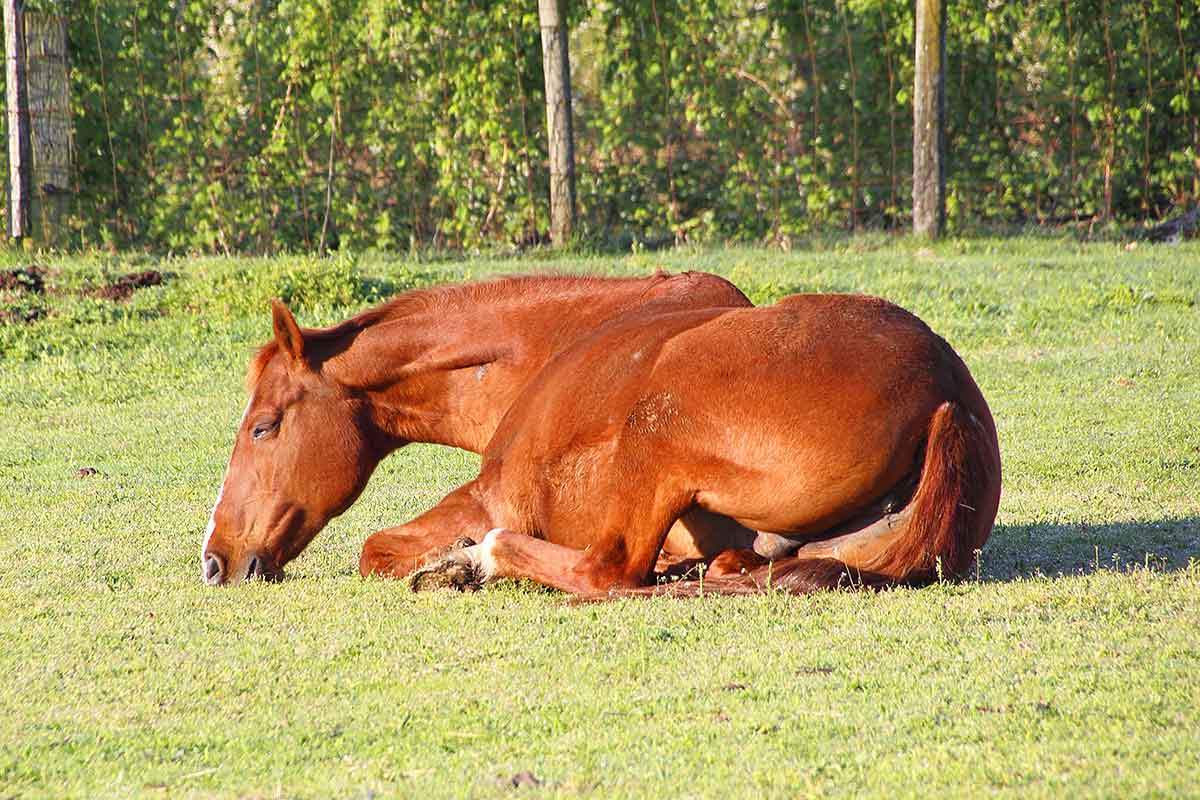Colic in horses refers to abdominal pain, which can have various causes. Colic is a serious medical condition that can be life threatening for horses. Often an impaction colic can be caused by dehydration and eating something that cannot pass through the digestive system thus causing a blockage. This blockage leads to a build up of gas and discomfort for the horse. It’s a common and potentially serious condition that requires prompt attention from a veterinarian. Some common causes of colic in horses include:
- Gastrointestinal Disturbances: Issues such as gas accumulation, impaction, or twists in the intestines can cause colic.
- Changes in Diet: Rapid changes in diet or inadequate water intake can lead to colic.
- Parasites: Internal parasites can contribute to colic.
- Stress or Anxiety: High-stress levels or sudden changes in the horse’s environment can trigger colic.
- Ingestion of Foreign Material: Swallowing objects that can’t be digested may lead to colic.
- Colonic Torsion: Twisting of the large intestine can cause severe colic.
Symptoms of colic may include restlessness, pawing, sweating, rolling, and other signs of discomfort. It’s crucial to contact a veterinarian immediately if you suspect colic in a horse. Treatment options depend on the specific cause and severity of the condition. Initial recommendations to treat colic are to stimulate the horse to drink water by feeding the horse electrolytes, encourage bowel movements with walking or trailering, and administer smooth muscle anti inflammatories like banamine.
If you have a specific question or if you suspect colic in a horse, it’s important to seek professional veterinary advice promptly. If you have a general question about colic in horses, just contact us.
Central Texas Animal Chiropractor provides adjustments to animals can improve their ability to adapt to environmental stressors and heal more efficiently. These adjustments allow animals to move in a more balanced way, with less pain.
